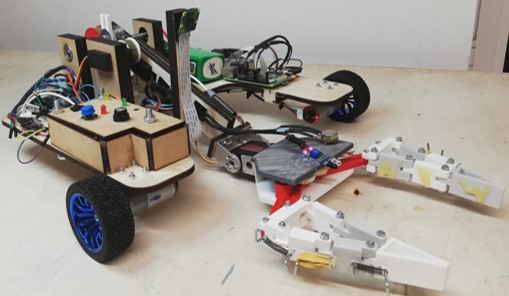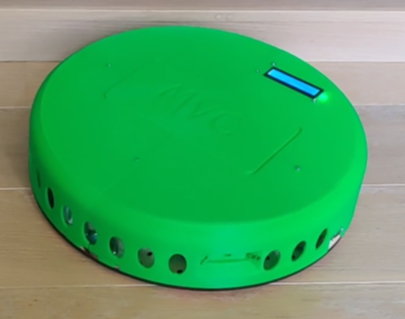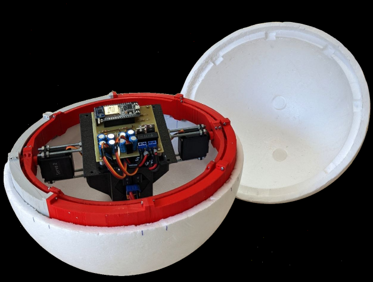Learning Robots Lab
|
Robots
and AI
|
 Introduction
Introduction
The goal is to let robots learn themselves starting from an ‘empty’
brain to control their world. This will make robots more robust and
versatile since they will be able to adapt to new environments and
changes in their environment.
Humans are the example. Babies are born without any skills, they
even don't know how to control their muscles/limbs. They just have
the skill to learn... And become experts in understanding and
controlling the world. Better than animals preprogrammed with
instincts. Or at least more versatile.
Our strategy is to start with incrementally learning the system's
structure—dependencies, causal connections and phase transitions—by
doing a qualitative analysis rather than learning a monolithic
quantitative model.
The result is a decomposition based on reusable, monotonous
components that are then transformed into quantitative models.
Learning takes place gradually and is closely intertwined with
exploration and exploitation.
 Thesis
topics
Thesis
topics
Check
our proposals 2025-2026
 Current work
Current work
We are further working on our result of the IWAI paper.
Then we continue to work on our solution for the REAL
Open Ended Learning competition.
 Some of our self-made robots
Some of our self-made robots
last
updated:
December 2023 by Jan Lemeire
Engineering Faculty, VUB



